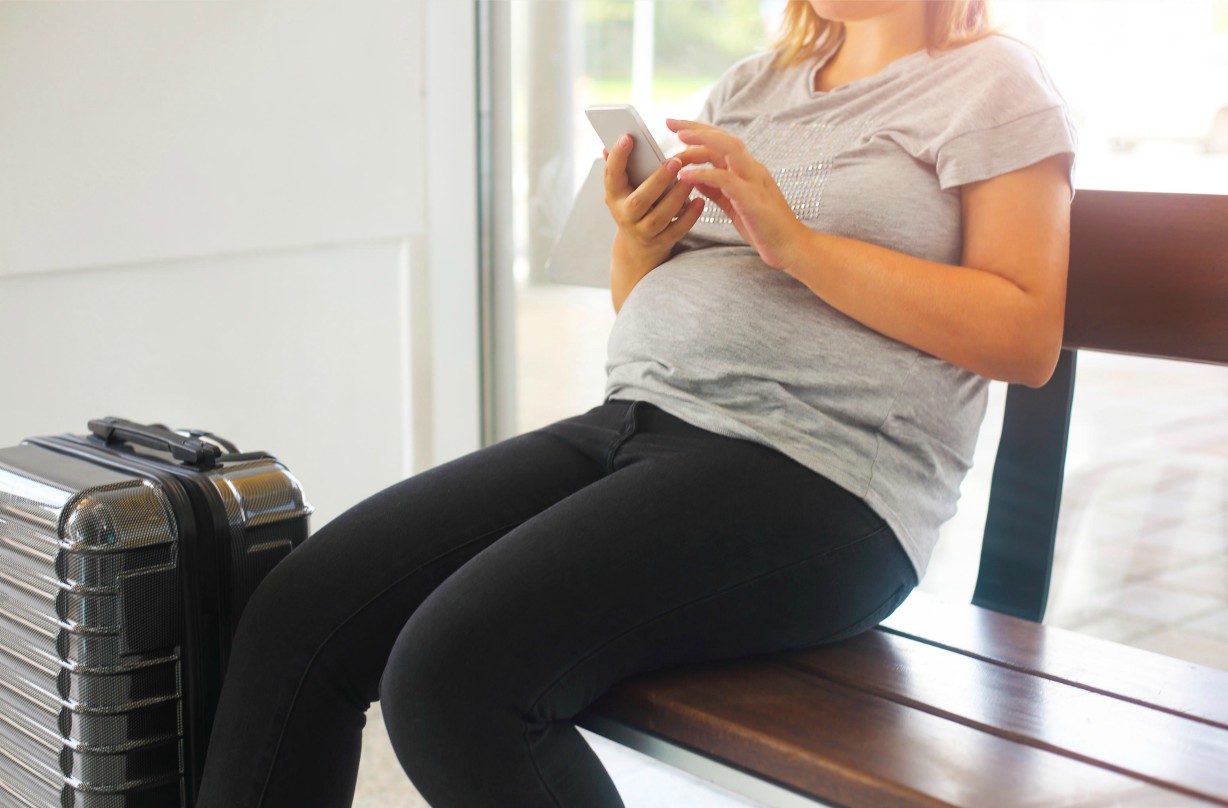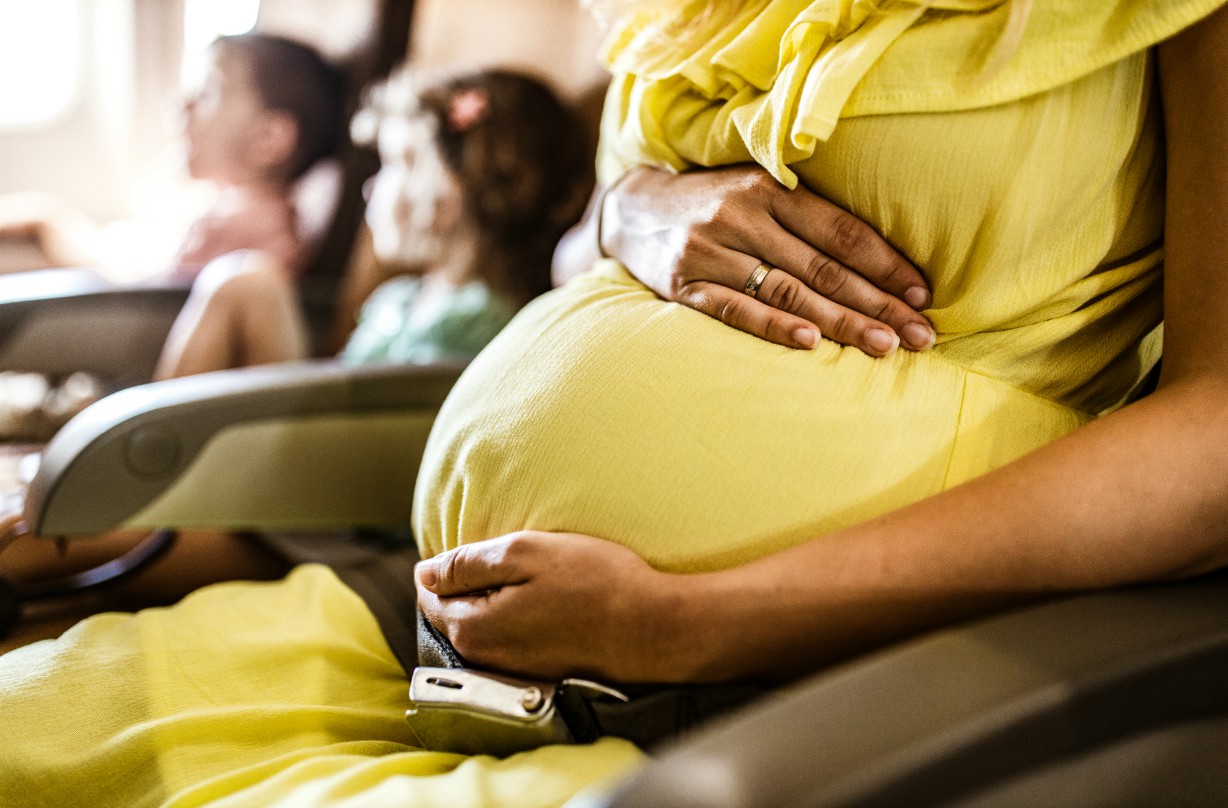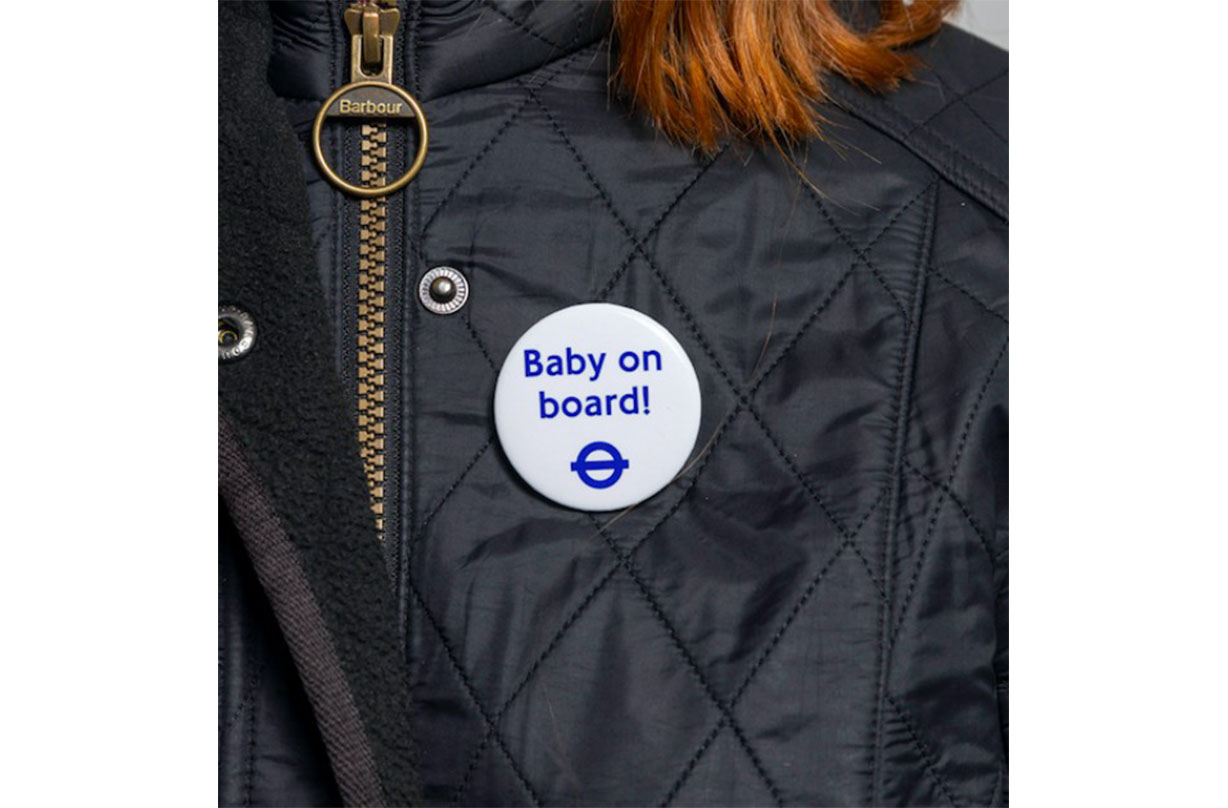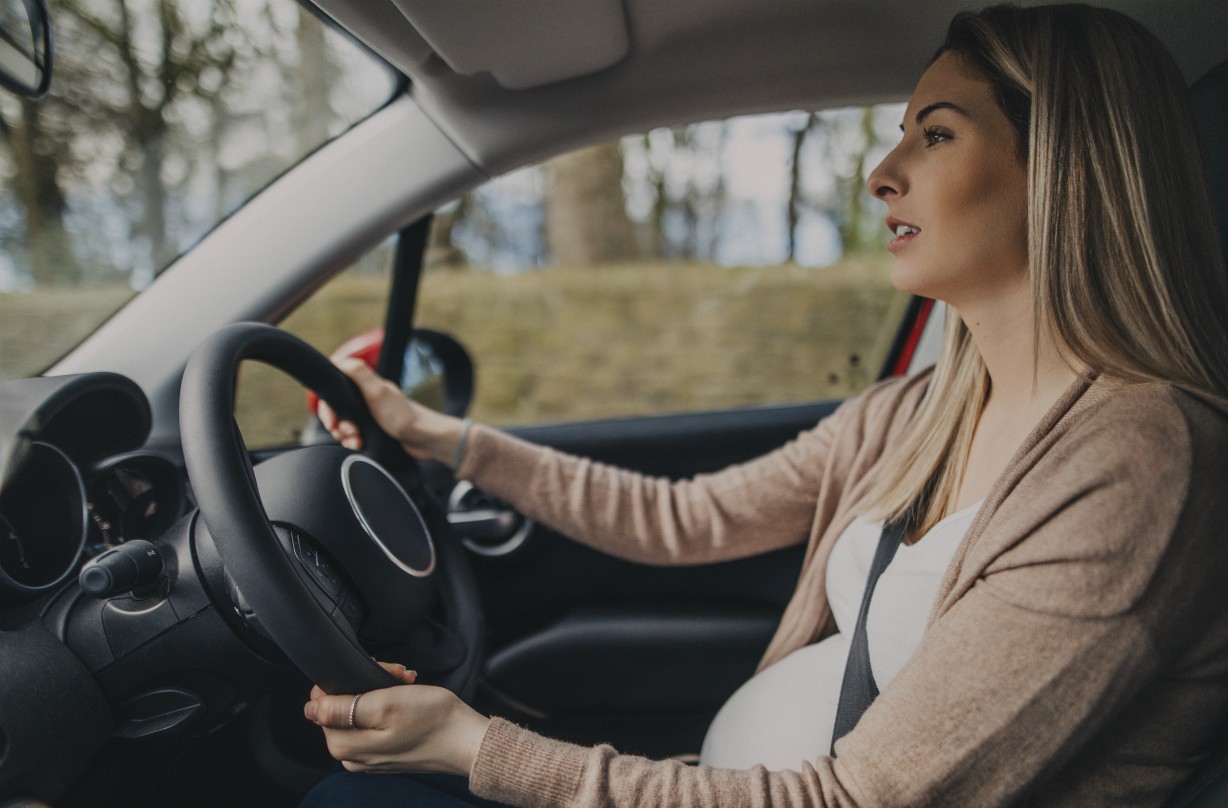Can you fly when pregnant? Everything you need to know about travelling while pregnant
Take the stress out of travelling when pregnant by being prepared. We tell you everything you need to know, whatever your mode of transport.


Take the stress out of flying when pregnant by being prepared. We tell you everything you need to know before, after and during your flight, so you can sit back and relax.
Flying when pregnant can be hard work. In your first trimester you may be suffering from morning sickness, but not have any visible signs of being pregnant. Then later in pregnancy you might be tired and heavy and find it difficult to walk and stand up for too long.
It's really important you try and avoid stress as it can cause low birth weight and even premature labour. But there are ways to make your life easier if you have to travel by plane.
So is flying when pregnant safe - and if so, are there any restrictions at all?
Narendra Pisal, a consultant gynaecologist, said: 'If you’re are experiencing a normal pregnancy without complications, travelling when pregnant is safe – you just need to know your limits.'

Flying when pregnant: is it safe?
Flying when pregnant can be one of the main worries for expecting mums. And each airline may have different rules about when you can fly. The safest time to travel by plane when you're pregnant is after 14 weeks and before 28 weeks, because there's a reduced risk of miscarriage, or going into labour at this stage of pregnancy.
If you fancy a last-minute holiday before your baby's due or you've been invited to a wedding abroad, you will need to consider insurance and the airline you're flying with.
Parenting advice, hot topics, best buys and family finance tips delivered straight to your inbox.
Most airlines don't have a problem with women flying when pregnant up to and including the 36th week, as long as there haven't been any complications, but it's really important you check with the individual airline before booking.
Most airlines will also require a medical certificate if flying when pregnant after week 28 of pregnancy, which you can get from your GP. Guidelines suggest that if a flight's less than 4 hours you might be able to fly from 36 to 38 weeks, but again, you must check with your airline as they each have their own rules.
MORE: Am I pregnant? Early signs and symptoms of pregnancy
If you've given birth prematurely in a previous pregnancy or suffered from blood clots or deep vein thrombosis, the airline may refuse to let you fly. Don't forget, too, that you need to think about how many weeks' pregnant you'll be for your return flight, as if it's past 36 weeks you might find you're not allowed to fly home!
If you're flying when pregnant before 36 weeks, remember to drink plenty of water and ask for an aisle seat so you can get up and walk around easily if you're feeling uncomfortable, to help increase circulation to prevent swollen ankles and legs.
Narendra Pisal advises: 'Pack more sensibly when pregnant - feet can get swollen so ensure you have comfortable shoes. Leg cramps can be common in pregnancy so it’s best to do some stretching and wander around more. Flight socks can also be useful when pregnant to keep your circulation moving if on a long journey. Drinking lots of water to avoid dehydration is key and just taking more breaks to truly relax will help energy levels.'
He continued: 'The main thing to worry about is risk of thromboembolism. So wearing compression stockings, hydration and mobilising are wise precautions. Also assess your own risk of going into labour, rupture of membranes and other complications, which cannot be dealt with easily on board.'
Pregnancy travel insurance
Make sure you check your travel insurance to see if you'll be covered if you need to see a doctor about your pregnancy or need hospital treatment or give birth abroad. Pregnancy is classed as a pre-existing condition so don't assume you'll be covered if you haven't mentioned it to your insurance provider.
Your essential check list if flying when pregnant
- Check with the airline you're flying with their regulations on flying.
- Get relevant medical documents from your GP, hospital or midwife.
- Invest in anti-DVT socks.
- Check your insurance documents that you are covered for pregnancy-related medical problems.
How safe are other methods of transport for travelling when pregnant?
There are plenty of other options rather than hopping on a plane when it comes to your summer hols. Whether you're planning on boarding a ferry, train or driving, our tips for travelling while pregnant should put your mind at ease.
Travelling on ferries when pregnant
Like planes, ferries have rules on carrying pregnant passengers. Some will not accept pregnant women on their services beyond 28 weeks, so it's sensible to check before you book your tickets.
Sue Ingamells, Fertility Expert Consultant at Wessex Fertility, said: 'The main issue caused by travelling on ferries is nausea and vomiting from sea sickness. In order to prevent this, keep well hydrated and have a cabin or booked seat to rest. I would also avoid over-eating and strong food smells. You should also make sure you prevent prolonged standing and refrain from carrying any heavy bags.'
If you suffer from travel sickness, try wrist bands to help, or see your GP or pharmacist and get specialist advice on what you can take while pregnant.

Travelling during pregnancy by train
Some train companies let pregnant women sit in first class carriages as long as there are no seats in standard class and they hold monthly or annual season tickets and you can prove you are pregnant with a note from your doctor or hospital. Other train companies leave it up to the conductor to decide.
First Capital Connect, South West Trains and South Eastern all offer pregnant women with season tickets an upgrade to first class when other seats aren't available.
Copy your season ticket and photo-card and your MAT B1 maternity certificate or FP92 Family Health Services Authority Exemption Certificate and send to the addresses outlined on the websites above.
Sue Ingamells saod: 'There are no real issues associated with travelling by train when pregnant, however it would still be best to avoid standing for prolonged periods of time. Ensure that you stay well hydrated and get up and walk around/do gentle stretching for mobility purposes if it’s long journey.'
If you have a choice of where to sit on the train, it's wise to choose somewhere near the toilet so you can see when it's occupied and not have to fight down the aisles of a moving train every time you need to go, particularly if your bump has caused your balance to be affected!
Travelling on London Underground or by bus when pregnant
Travelling when pregnant on busy and crowded public transport can be daunting. A poll run by Transport for London showed that 92 per cent thought that people sitting down should offer a seat to a pregnant woman without having to be asked.
But many also said they were nervous about offering in case they caused offence, for example, if they offered an overweight woman a seat, thinking they were pregnant.
As a result they trialled a 'baby on board' badge (pictured further up this article) pregnant women could wear to let people know they might need a seat, even if they don't have a significant bump. Get yours from Transport for London's customer service centre, or by calling 0845 330 9880 or email babyonboard@tfl.gov.uk.

Driving while pregnant
The main danger to pregnant women in the car is from seatbelts, because they cross your bump and in an accident could harm your baby. Try to wear your seatbelt below your bump, across your hips. Make sure you also take regular breaks to walk around and pack snacks and drinks to take with you too.
There will come a time when your bump is simply too big for you to drive! In the mean time follow these handy tips:
- Go to the toilet before you start your journey.
- Pack water and snacks in your bag.
- Take regular breaks.
- Make sure your seatbelt is below your bump.
- Try to avoid stressful journeys.
- If you're involved in an accident, however minor, make sure you are checked over by a doctor.
- If you're very pregnant ask someone else to drive as you could be very close to the steering wheel.
- Airbags will not harm your baby if they inflate after an accident.
- Adjust your seat to make it as comfortable as possible for driving.
- Never drive without wearing your seatbelt.
Other helpful suggestions for travelling while pregnant:
- Have a bottle of water and a snack on you at all times in case you start feeling faint.
- Ask your manager if you can possibly work slightly different hours to avoid rush hour transport.
- Make sure you rest before and after travelling as much as you can.
- Take deep breaths to try and slow down your pulse, lower your blood pressure and reduce stress.
- Ask people sitting in priority seats to move for you if they're not in need of them themselves.
- Go to the toilet before you get on any transport, in case you are delayed.
Lauren is a senior content editor covering everything from the latest royal news to fashion, beauty and health content. Lauren graduated from her masters in magazine journalism in 2011, quickly making the transition over to digital and has never looked back. From getting out a breaking news story to penning an in-depth feature, she loves the variety of writing for digital platforms.
